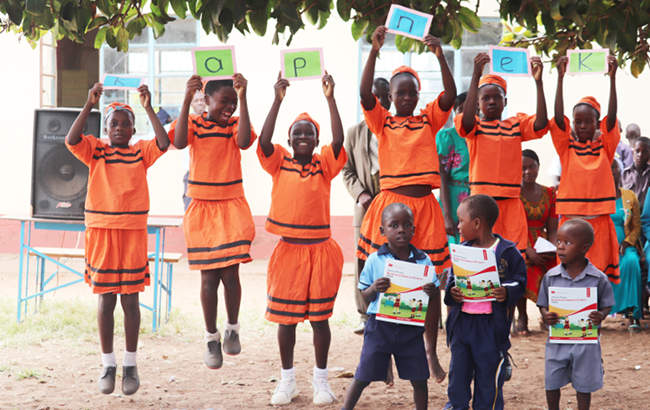
Integrated Early Childhood Development Programme (ECD)
systems.
Geographical Coverage
- Ngezi
- Zvimba
- Mhondoro
- Chegutu
- Sanyati
The IECD program has the following components to make it a comprehensive package for
OVC:
- ECD Infrastructure improvements– Although it has been government policy for over a decade that all primary schools have ECD centers, most of the schools lack adequate infrastructure, a situation that has deterred many children from attending ECD. With the support of the community, the Trust renovates and furnishes ECD classrooms to make them child friendly and age-appropriate.
- Positive Parenting-This activity targets all caregivers of children attending ECD at each particular school. These caregivers undergo a series of parenting meetings and discuss with trained facilitator aspects of child protection with particular emphasis on the prevention of violence, abuse, and exploitation of children. These sessions are facilitated using a Positive Parenting Manual developed by the Trust.
- Establishment of Community Based Child Protection Communities-In all the targeted
districts, the Trust supports the Department of Child Welfare and Protection Services in
establishment and ongoing capacity building to ward level Child Protection Committees
thus strengthening community-based child protection system. - School based health assessments– Targeting the children attending ECD, the organization supports the Ministry of Health and Child Care to conduct health checks of all children at
ECD centers during every term. Recently the Trust has piloted ECD center-based HIV counseling and testing of children and their caregivers. - Supplementary Feeding– Although the initial idea of supplementary feeding was to address malnutrition, evidence has shown that this has also acted as a pull factor to ECD attendance
with attendance multiplying with the introduction of supplementary feeding. ECD children receive a hot meal prepared each day by volunteers that is protein- and vitamin-fortified, and is at times the only meal the children have for the day. This support has been extended to Grade 1 and Grade 2 children in drought years. - Infant Stimulation Pilot Project– Adapting a protocol from the seminal Jamaican study that was done in the 1990s, the project trains and deploys home visitors who visit households twice
a month to teach parents/caregivers how to engage their young children 12-36 months in stimulating activities, such as singing songs, playing games, reading books and creating simple toys from locally available materials. The Jamaican study found profound, long-term impacts from such interventions, and this is one of several adaptations being done in several countries around the world. - ECD and Inclusive Education– to identify children with disabilities and facilitate their access to education with their peers. It is crucial to identify disabilities early and to work with parents, caregivers, and communities on issues of stigma related to disability. Children with disabilities are at heightened risk of abuse and neglect, so community awareness on protecting children with disabilities is also a key activity in this project.
- The ECD program was given UNICEF’s “Best Practice Award” in 2010 and was listed as a model after a review of 77 other programs in Southern Africa. For details and to download this visit Practices Report. For a featured case study visit Case Study
